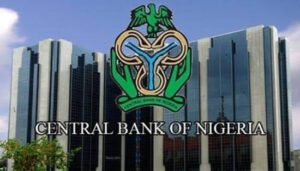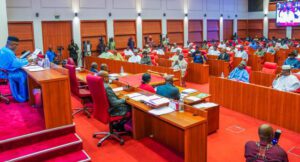


ABCON asks CBN to adjust applicable exchange rate downward
The Association of Bureaux De Change Operators of Nigeria (ABCON), the umbrella body of all Central Bank of Nigeria (CBN)-Licensed Bureaux De Change (BDCs) in Nigeria has appealed to the Apex Bank to adjust and lower its applicable Exchange Rate downward below the N1,251/$ its pegged for the BDCs.
The request is coming in the midst of the epoch history making achieved by the apex bank for the first time in the last 15 years for the unofficial market rates at N1,235/$ to be lower than the official BDCs applicable buying exchange rate of N1,251/$ (plus 1.5 percent margin) set for the BDCs by the CBN in its latest tranche of intervention.
The group insisted that naira’s speedy recovery, which was faster than expected had made CBN’s selling rate to BDCs very expensive and difficult to offload to retail end buyers that are trooping to the undocumented forex operators for cheaper rates and avoiding the BDCs services
In a letter to CBN Director, Trade & Exchange Department, ABCON, signed by its National President, Alhaji (Dr.) Aminu Gwadabe, ABCON further expressed concerns that many BDCs who funded their accounts for dollar allocations are yet to receive their allocation of dollars to meet up the legitimate critical demand of their clients due to scrutinisation of the BDCs documents for collections at the various designated Centers which invariably made the BDCs vulnerable to exchange rate risk and significant loses.
The group insisted that with naira appreciating across markets, many BDCs who bought dollar at N1,251/$ will lose significant income and capital if they sell at the current open market rate of N1,235/$ and therefore the need for the call for a further review downward of the applicable exchange rate for the period and subsequently to continue to enhance naira sovereignty.
“We discovered a worrisome development where many of our members who paid for dollar allocations at N1,251/$ with a margin of 1.5 percent are yet to receive their disbursement. This is happening in the face of prevailing open market rate of N1,235/$ which is lower than the authorised applicable exchange rate by the CBN to the BDCs,” the statement said.
Despite this development, ABCON lauded the CBN leadership for the recall of BDCs into the official FX window and steps taken by the apex bank to strengthen the naira against the dollar and other global currencies.
ABCON said the positive fallout of the CBN’s efforts to restore naira’s glory came faster than expected, reiterating its commitment to working with the apex bank to realise the objectives of the government towards exchange rate stability and economic growth.
ABCON stated that their forecasts in the ongoing market development indicates a willingness of the market to correct itself with a realistic price discovery as naira is forecast to continue to appreciate further across market with the increasing sources of foreign exchange inflows aided by the CBN policies
“It is in view of the above market developments that we write to appeal to your good selves for a readjustment and review downwards of our funding rate of the last tranche (2nd bidding) from N1,251/$ further down to reflect current market rate discovery. This became imperative as it is only the consideration of the readjustment downward that will enable our members to upload their holding positions,” the statement said.
ABCON also requested that the process of payments at the various disbursements centres be reviewed in the immediate time to a medium time automation to achieve enhanced timely payments while also observing the spot nature of our transactions.
The group further requested that based on the offer and acceptance rule, the approval of refunds to those that are yet to collect disbursement having funded their accounts as it is the market that determines the rate presently be considered going forward.
ABCON also requested that the apex bank introduce cut-off time for payments and collection of bids, adding that the current open ended system for payments and collection of bids does not make for effective administration and control of the process.
“Consequently, many of our members are jittery to bid/collect their bid for fear of losing money as the current market reality has the potential to force us to sell below cost price and antithetical to recent market price discovery,” the group said.
ABCON insisted that the disturbing exchange rate disparity can be addressed by a quick and decisive response of the apex bank, which will go a long way in bolstering BDC operators’ confidence in the ongoing intervention by the Central Bank of Nigeria as well as enhance their participation in the bidding process.



